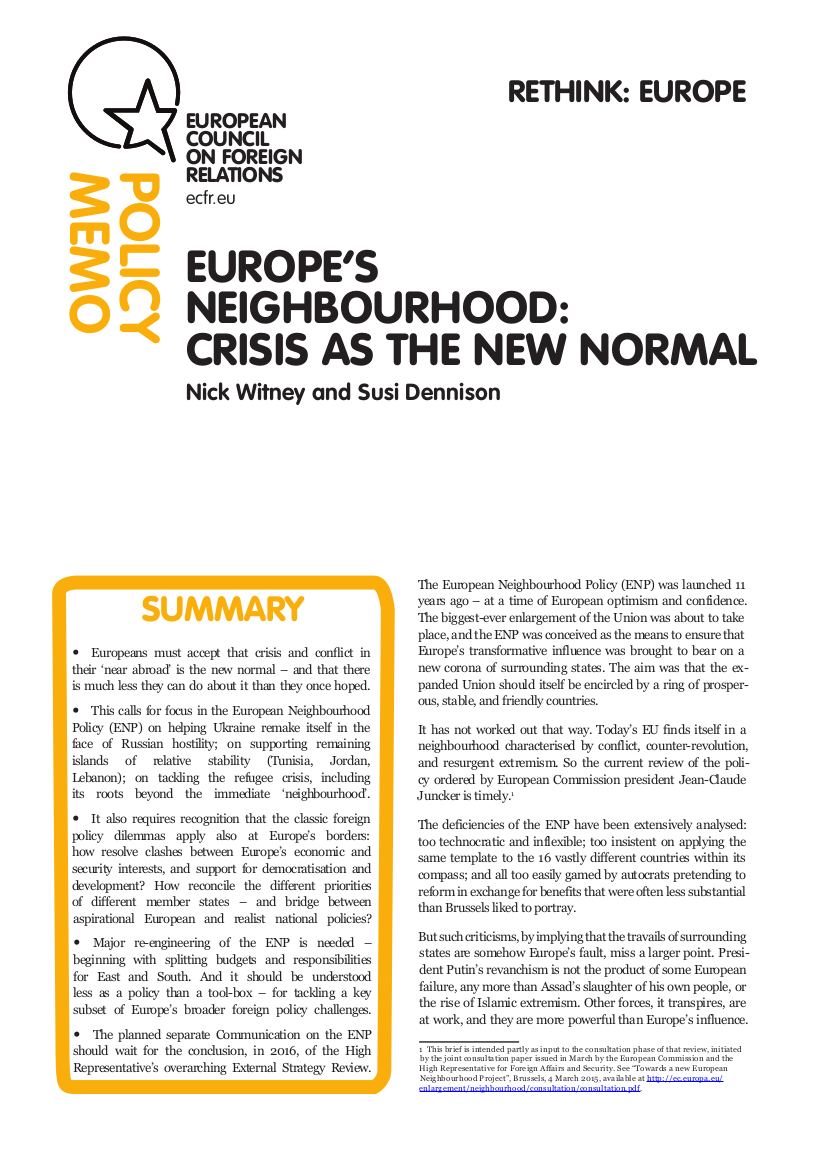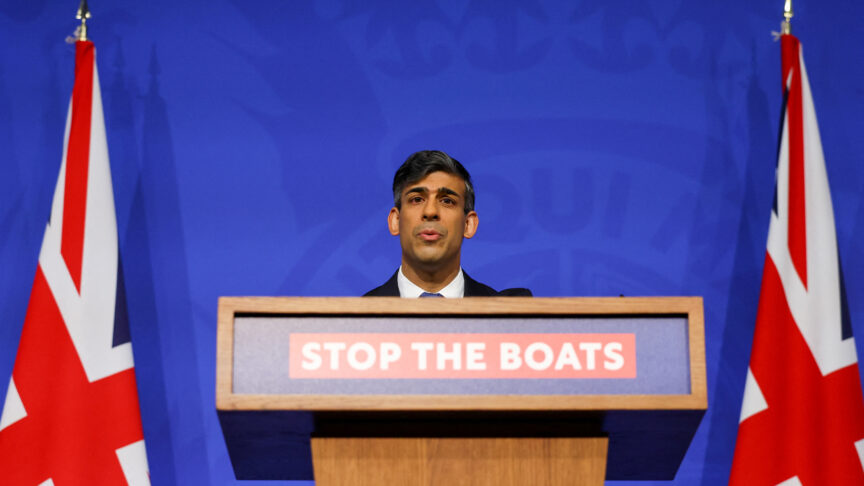Europe’s Neighbourhood: Crisis as the new normal
Europe’s European Neighbourhood Policy (ENP) needs drastic reform to deal with a region characterised by conflict, counter-revolution, and extremism
Europe’s European Neighbourhood Policy (ENP) needs drastic reform to deal with a region now characterised by conflict, counter-revolution, and a resurgence of extremism, according to an ECFR Paper.
“Europe’s Neighbourhood: Crisis as the new normal” was submitted as a formal response to the European Commission consultation on the ENP, and calls for Europeans to wake up to the fact that, though their neighbourhood may be their geographical backyard, they neither own it nor control it. The old idea of bringing Europe's transformative influence gradually to bear on the 16 adjacent countries covered by the ENP needs to be overlaid with more hard-headed policies based on more focussed and realistic priorities.
Dennison and Witney conclude that there is a strong case for splitting the European neighbourhood into East and South, with a Commissioner for each acting as a deputy to Federica Mogherini, the EU's foreign policy chief.
Such a division would promote a new assessment of Europe’s interests in both areas, with the authors suggesting that to the East, the EU should concentrate on facing up to Russia’s challenge in Ukraine by providing economic and financial help to the Kiev government; and in the South focus on the migration crisis incorporating the Sahel and the Horn of Africa into a broader strategy, whilst also shoring up remaining islands of stability such as Tunisia, Jordan and Lebanon. Between South and East, Europe needs to re-engage with Turkey as a regional power.
The authors also call for more realism and frankness between member states about their differing national interests and make the case for mapping member states’ specific interests and priorities within the broader neighbourhood region.
Finally, the authors recommend that no decisions on the ENP review should be taken ahead of the conclusion of High Representative Mogherini’s wider external strategy review in 2016.
Nick Witney, co-author of “Europe’s Neighbourhood: Crisis as the new normal”, said:
“The ENP has been overtaken by events, and can no longer bear the weight that it was originally supposed to carry. As seemingly permanent crisis rages in Europe’s backyard, the age of European paternalism to its neighbours is over.
“While it is tempting to conclude that the ENP should simply be scrapped, this is neither practical politics nor particularly desirable. But it does need to be radically re-engineered.
“Instead of treating the ENP as a catch-all for Europe’s entire neighbourhood, it should be seen as a tool-box of instruments that can be more flexibly applied. That means greater focus on the differences between East and South and a frank discussion about where member states see their interests overlapping and their influence complementary, and where they do not.”
Mark Leonard, Director of ECFR, said:
“When launching the consultation on the future of the ENP, High Representative Mogherini highlighted the increased scale of the challenges we face: economic pressures, migration and security threats.
“The ENP as it stands is ill-suited to dealing with these varied and dangerous crises and we need policies that are robust enough to allow the EU to stand its ground where necessary, but flexible enough to deal with the range of challenges Europe faces.”
Emma Bonino, former foreign minister of Italy and co-chair of ECFR, said:
“The world is not what it was. The EU has neither the capacity nor the ability to impose Western values in our neighbourhood. That means we need a more realistic approach to what we can do.
“First of all, we must recognise that we face different, but no less serious, challenges in the East and South and having a Commissioner for each would provide these areas with better-attuned policies and more relevant activity. It will also strengthen the voices of those around the Commission table pushing for better foreign policy.”
The European Council on Foreign Relations does not take collective positions. ECFR publications only represent the views of their individual authors.



